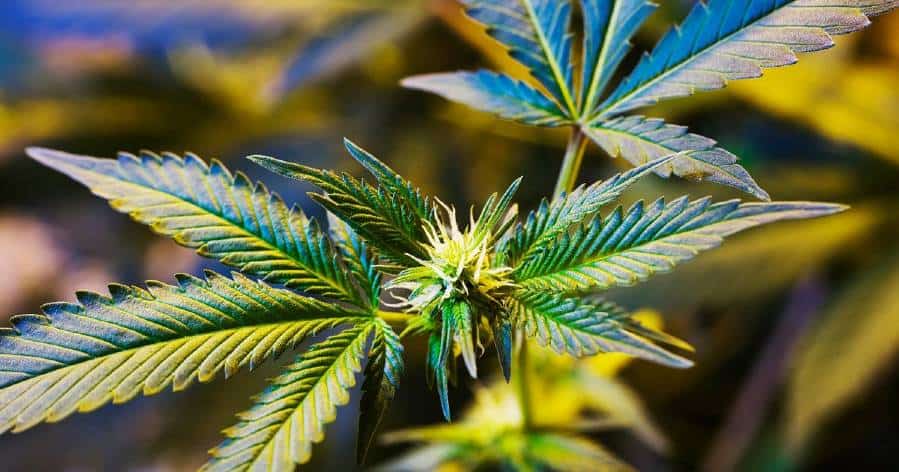The human genome continues to unveil mysteries regarding why some individuals embrace cannabis while others shy away. A significant genetic investigation led by the University of California San Diego in collaboration with 23andMe has linked cannabis usage to specific genes associated not only with brain function but also with psychiatric, cognitive, and physical health aspects. The results, released in Molecular Psychiatry, represent one of the most extensive and thorough examinations of cannabis-related behaviors conducted to date.
The study evaluated data from 131,895 participants who provided genetic information and responded to queries about their cannabis usage patterns. Researchers then explored millions of DNA markers for correlations with lifetime usage and frequency. This led to a genetic framework that connected cannabis to a range of traits, from impulsivity and mental health issues to metabolic problems.
Two Genes, Numerous Links
The research team pinpointed two key genes at the heart of their findings. The first, CADM2, is involved in the formation and communication of neurons in the brain. It has appeared in previous studies examining impulsivity, obesity, and even the spread of cancer. The second gene, GRM3, affects how neurons communicate via glutamate, an essential neurotransmitter for learning and memory. Variants of GRM3 have been associated with schizophrenia and bipolar disorder, giving this gene a familiar yet concerning reputation in psychiatric genetics.
“While cannabis is commonly used, its long-term health implications are not well understood,” remarked Sandra Sanchez-Roige, Ph.D., associate professor of psychiatry at UC San Diego School of Medicine and the study’s senior author.
The research uncovered more than just individual genes; it also demonstrated that lifetime and frequent cannabis usage exhibit significant genetic overlaps with over 100 traits. These included ADHD, anxiety, depression, diabetes, chronic pain, and coronary artery disease. Individuals with a heightened genetic propensity for cannabis use were also more likely to possess markers linked to tobacco usage, viral infections like HIV, and autoimmune diseases.
Overall, the analysis identified 40 additional genes correlated with lifetime cannabis use and four associated with usage frequency. Twenty-nine of these genes had not previously been linked to behaviors related to cannabis. The findings imply that cannabis use does not occur in a genetic vacuum but exists within a complex network of biological systems impacting both mental and physical health.
Identifying Risk Before Addiction
By focusing on individuals who had experimented with or regularly consumed cannabis without necessarily developing a dependency, the research mapped the genetic risk earlier along the addiction continuum. This methodology may assist researchers in pinpointing prevention opportunities well before the onset of cannabis use disorder.
“For decades, we have understood that genetic elements influence whether individuals will experiment with drugs, their frequency of use, and their addiction risk,” stated Abraham A. Palmer, Ph.D., professor and vice chair for basic research in the Department of Psychiatry at UC San Diego School of Medicine. “Genetic methodologies such as GWAS enable us to uncover the molecular frameworks that correlate cannabis usage with brain activity and behavior.”
The researchers utilized two independent biobank datasets from the National Institutes of Health’s All of Us Research Program and Vanderbilt University Medical Center to validate their results. The genetic markers indicative of cannabis use were consistently observed, underscoring the relationship between early behavioral patterns and later health outcomes. These pre-addiction genetic indicators may highlight biological pathways which could be targeted through medication or behavioral interventions to mitigate risk.
At present, cannabis use disorder lacks any FDA-sanctioned pharmacological treatment. The research team aspires that a clearer genetic landscape could unveil new therapeutic avenues or preventive approaches. As cannabis accessibility expands globally, such knowledge may be critical for weighing its prospective benefits against the inherent risks embedded in our genetic makeup.
Molecular Psychiatry: 10.1038/s41380-025-03219-2
If our reporting has enlightened or motivated you, please think about making a donation. Each contribution, regardless of size, empowers us to keep providing accurate, engaging, and reliable science and health news. Independent journalism demands time, effort, and resources—your support ensures that we can persist in uncovering the stories that matter most to you.
Join us in promoting accessible and impactful knowledge. Thank you for your support!
